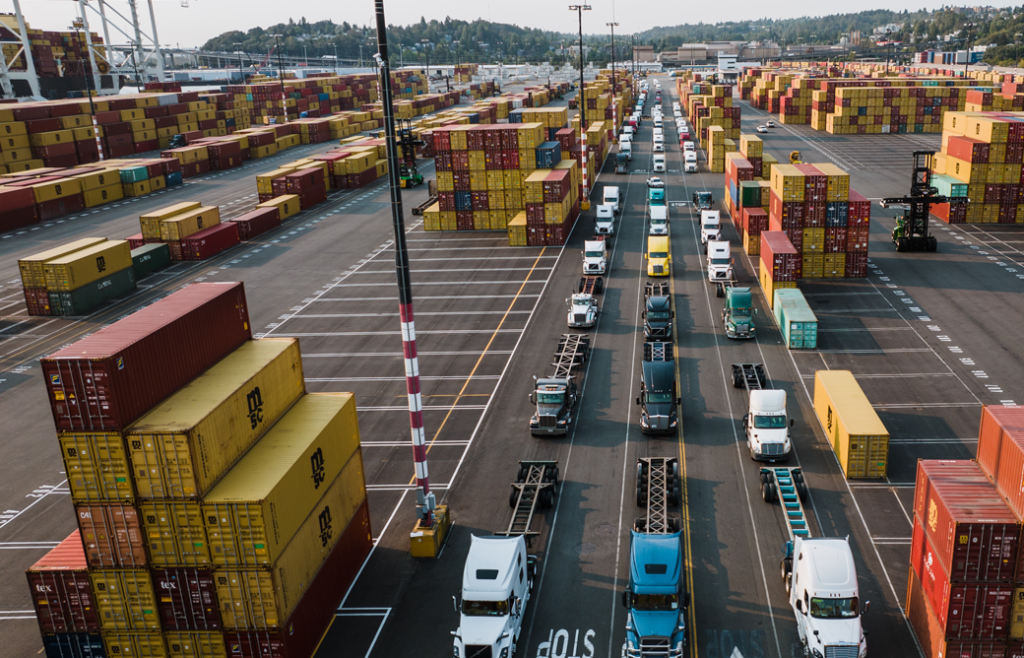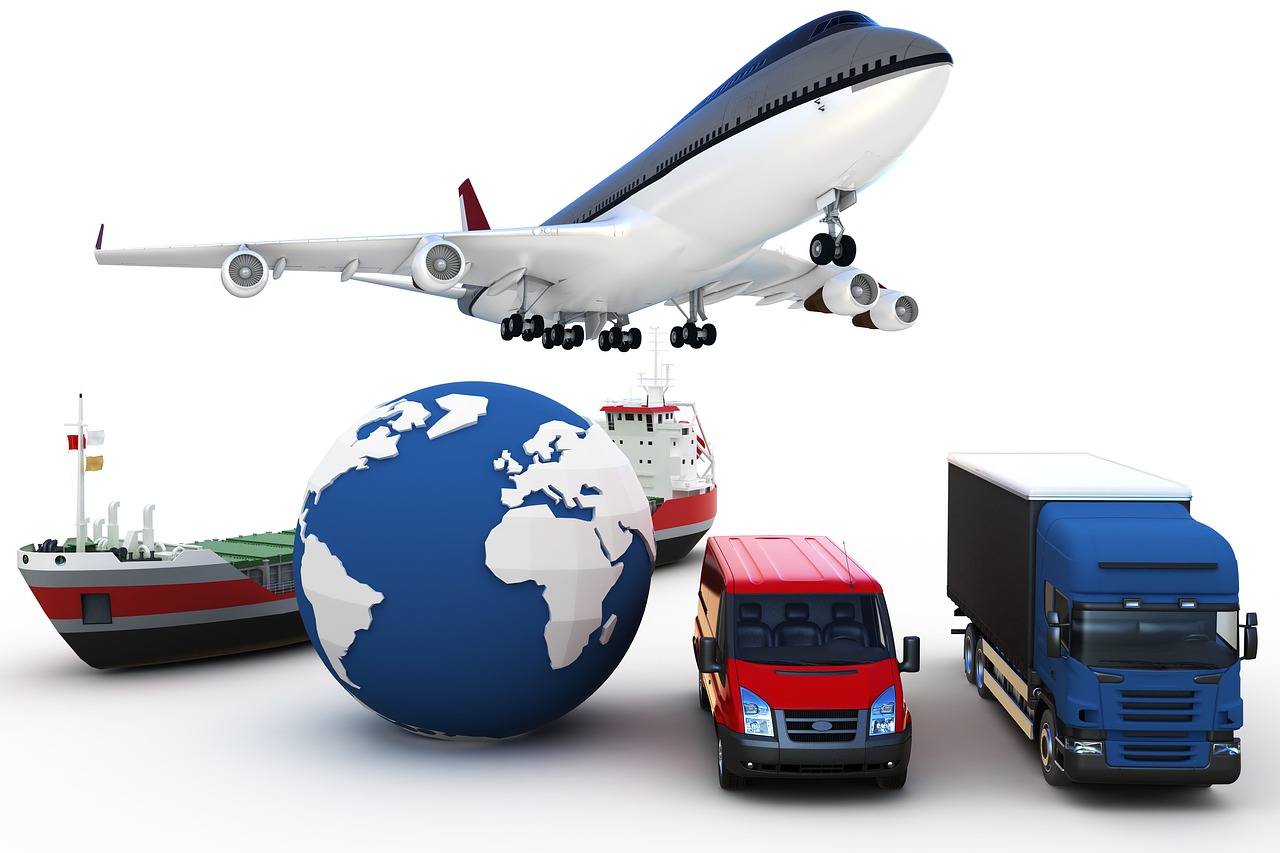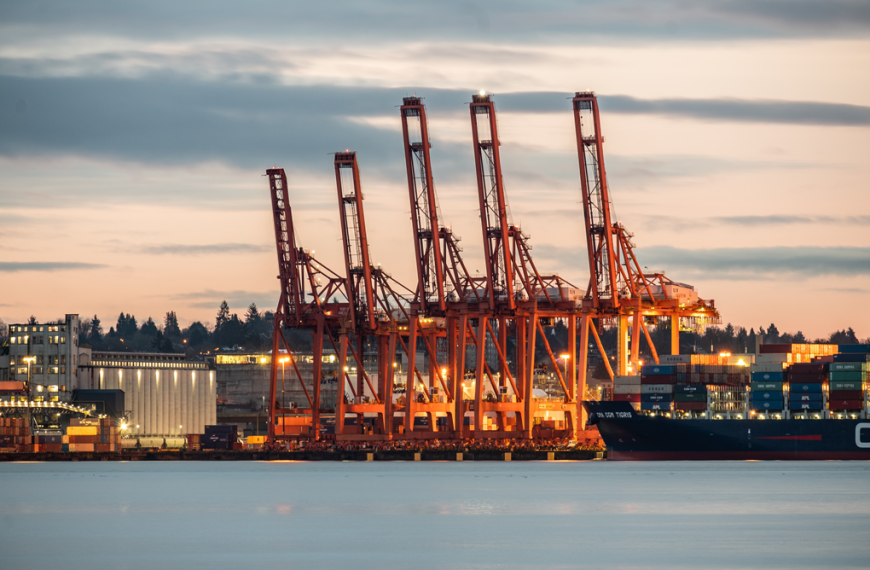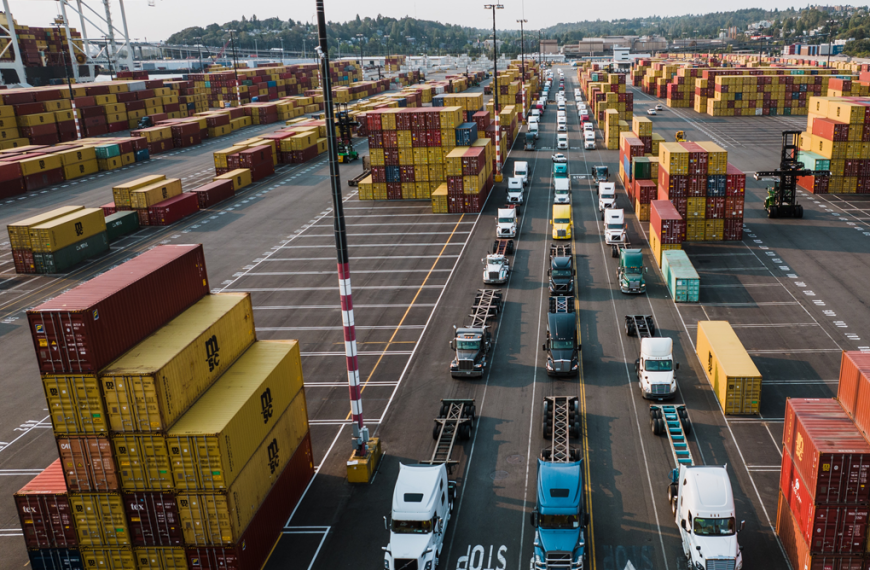Freight forwarding is a crucial aspect of the supply chain, facilitating the movement of goods from one country to another. Whether it’s packages, crates, or containers, freight forwarders work with shipping companies, airlines, hauliers, and customs authorities to ensure smooth transportation from the point of origin to the final destination. In this comprehensive guide, we will delve deeper into the world of freight forwarding, exploring its processes, benefits, and the difference between a freight broker and a freight forwarder.
- 1. What is Freight Forwarding?
- 2. The Role of a Freight Forwarder
- 3. The Freight Forwarding Process
- 4. Benefits of Using a Freight Forwarder
- 5. Freight Forwarding vs. Freight Brokerage
- 6. Types of Freight Forwarding
- 7. Choosing the Right Freight Forwarder
- 8. International Freight Forwarding Solutions
- 9. Conclusion

1. What is Freight Forwarding?
Freight forwarding is the process of organizing the shipment of goods from one country to another. It involves coordinating various transportation modes, including sea, air, road, and rail, to ensure the efficient and timely delivery of cargo. Freight forwarders act as intermediaries between shippers and carriers, handling documentation, customs clearance, and logistics coordination.
2. The Role of a Freight Forwarder
A freight forwarder plays a pivotal role in the smooth execution of international trade. Their responsibilities extend beyond simply moving goods. Here are some key roles they perform:
a. Logistics Coordination
Freight forwarders leverage their extensive network of contacts to negotiate the best routes and rates for their clients. They handle the logistics coordination, ensuring that shipments are picked up, transported, and delivered in a timely manner.
b. Documentation and Customs Clearance
One of the critical tasks of a freight forwarder is managing the documentation and customs clearance process. They handle the paperwork required for international shipments, ensuring compliance with regulations and smooth movement across borders.
c. Risk Management
Freight forwarders are well-versed in managing risks associated with transportation. They provide insurance options to protect shipments against loss or damage during transit. Additionally, they offer advice on packaging, labeling, and handling requirements to minimize the risk of damage.
d. Supply Chain Optimization
By leveraging their expertise and industry knowledge, freight forwarders help optimize the supply chain for their clients. They identify opportunities for cost savings, consolidation of shipments, and efficient routing to streamline the transportation process.
3. The Freight Forwarding Process
The freight forwarding process involves several stages, each crucial for the successful shipment of goods. Here’s an overview of the key steps:
a. Agreement on Terms of Trade
The importer and supplier agree on the terms of trade, known as International Commercial Terms (Incoterms). Incoterms define the responsibilities of each party involved in the transaction.
b. Origin Handling and Export Clearance
Depending on the agreed Incoterms, the freight forwarder arranges for the transportation of goods from the supplier’s location to the next stage of the supply chain, such as a seaport or an airport. They also ensure that the cargo is inspected and cleared by the customs department, if necessary.
c. Export Customs Clearance
The freight forwarder coordinates the necessary paperwork between the supplier and recipient to meet the legal and carrier requirements. This includes preparing the required documentation for customs clearance in the origin country.
d. Import Customs Clearance
Once the cargo reaches the destination country, the freight forwarder checks the paperwork to ensure it complies with the customs and quarantine requirements. Preparation of this information in advance helps reduce delays in the process.
e. Onward Transportation to the Final Destination
After the goods are approved for release, the freight forwarder organizes their onward transit. This could involve direct delivery to the customer’s warehouse or store, or transportation to a warehouse managed by a third-party logistics provider (3PL).

4. Benefits of Using a Freight Forwarder
Partnering with a freight forwarder offers numerous benefits for businesses involved in international trade. Here are some key advantages:
a. Expertise and Industry Knowledge
Freight forwarders bring extensive expertise and industry knowledge to the table. They understand the intricacies of the logistics network, including shipping schedules, import regulations, and duty rates. This knowledge helps businesses navigate the complex world of international trade more effectively.
b. Time and Cost Savings
By outsourcing the logistics coordination to a freight forwarder, businesses save valuable time and resources. Freight forwarders handle documentation, customs clearance, and the arrangement of transportation, allowing businesses to focus on core operations. Additionally, freight forwarders can leverage their volume discounts to secure better rates for their clients.
c. Customized Transportation Solutions
Freight forwarders provide tailored transportation solutions to meet the unique needs of their clients. Whether it’s choosing the most efficient shipping route or arranging specialized transportation for perishable or hazardous goods, freight forwarders offer customized solutions to ensure the safe and timely delivery of cargo.
d. Risk Management and Insurance Options
Freight forwarders help mitigate risks associated with transportation by offering insurance options. They provide coverage for loss or damage during transit, giving businesses peace of mind. Additionally, freight forwarders offer advice on packaging and handling requirements to minimize the risk of damage to goods.
e. Global Network and Partnerships
Freight forwarders have an extensive network of global partners, including shipping lines, airlines, and trucking companies. These partnerships allow them to secure capacity, negotiate competitive rates, and ensure reliable transportation services for their clients. Businesses can benefit from these established relationships and access to global supply chain networks.
5. Freight Forwarding vs. Freight Brokerage
While the terms “freight forwarder” and “freight broker” are often used interchangeably, there are distinct differences between the two.
a. Freight Broker
A freight broker acts as an intermediary between shippers and carriers, facilitating the movement of freight. They connect shippers with carriers, negotiate rates, and oversee the transportation process. However, freight brokers do not take possession of the freight and primarily handle shipments within the United States.
b. Freight Forwarder
A freight forwarder goes beyond the role of a freight broker. In addition to arranging the shipment of goods, freight forwarders may provide storage services, handle documentation, and have operating authority in interstate or foreign commerce. Freight forwarders specialize in international shipments, managing the movement of goods across multiple countries or from one country to another.
6. Types of Freight Forwarding
Freight forwarding encompasses various modes of transportation to meet the diverse needs of businesses. Here are some types of freight forwarding:
a. Road Haulage
Freight forwarders choose the most suitable type of haulage vehicle to transport goods by road. This can include articulated lorries, container trucks, flatbeds, temperature-controlled trucks, box trucks, car transportation, tankers, and HIAB and side loaders.
b. Air Freight
Freight forwarders offer different air freight services, including direct services, consolidation, and charter options. Direct services are typically used for smaller parcels, while consolidation combines shipments to optimize cost efficiency. Charter services involve the exclusive use of an aircraft for specific cargo requirements.
c. Sea Freight
Sea freight forwarding involves various types of vessels tailored to the specific needs of shipments. Container ships are the most common, carrying cargo packed into containers. Tankers transport liquids, gases, and hazardous substances, while breakbulk carriers are ideal for transporting single commodities. Roll-on/roll-off vessels transport wheeled cargo, such as trucks and cars.
Post Grid #2
7. Choosing the Right Freight Forwarder
When selecting a freight forwarder, several factors should be considered:
a. Experience and Certifications
Look for a freight forwarder with relevant experience in your industry and international trade. Consider their certifications and licensing, ensuring they meet regulatory requirements. Industry certifications, such as Authorized Economic Operator (AEO), can be a testament to a freight forwarder’s expertise and commitment to compliance.
b. Services Offered
Evaluate the range of services offered by a freight forwarder. Consider whether they provide comprehensive logistics coordination, customs clearance, insurance options, and value-added services such as warehousing and assembly. Ensure they have the capabilities to handle your specific shipping requirements.
c. Global Network and Partnerships
Check the freight forwarder’s global network and partnerships. A well-established network ensures reliable transportation services and access to various shipping routes. Strong partnerships with carriers and other logistics providers can result in competitive rates and added value for your business.
d. Technology and Track Record
Assess the freight forwarder’s technological capabilities, including shipment tracking systems and visibility tools. A forwarder with advanced technology can provide real-time updates on the status of your shipments. Additionally, review their track record and customer testimonials to gauge their performance and reliability.
e. Cost and Pricing
While cost is an important factor, consider the overall value provided by the freight forwarder. Look beyond the lowest price and evaluate the quality of service, expertise, and added benefits offered. Request detailed pricing and ensure there are no hidden costs or surprises.
8. International Freight Forwarding Solutions
If you’re looking for reliable international freight forwarding solutions, consider partnering with a reputable provider like MDS Cargo. With their experience and expertise, they can handle your freight brokerage and freight forwarding needs efficiently. Whether you need to move freight across the country or around the world, Penske Logistics can ensure a seamless transportation process.
9. Conclusion
Freight forwarding plays a vital role in the global economy, connecting businesses and facilitating international trade. By partnering with a freight forwarder, businesses can benefit from their expertise, industry knowledge, and global network. Whether it’s coordinating logistics, managing documentation, or optimizing the supply chain, freight forwarders provide tailored solutions to meet the unique needs of each client. When selecting a freight forwarder, consider their experience, certifications, services offered, global network, and technological capabilities. By choosing the right freight forwarder, businesses can streamline their transportation processes, mitigate risks, and focus on their core operations.










